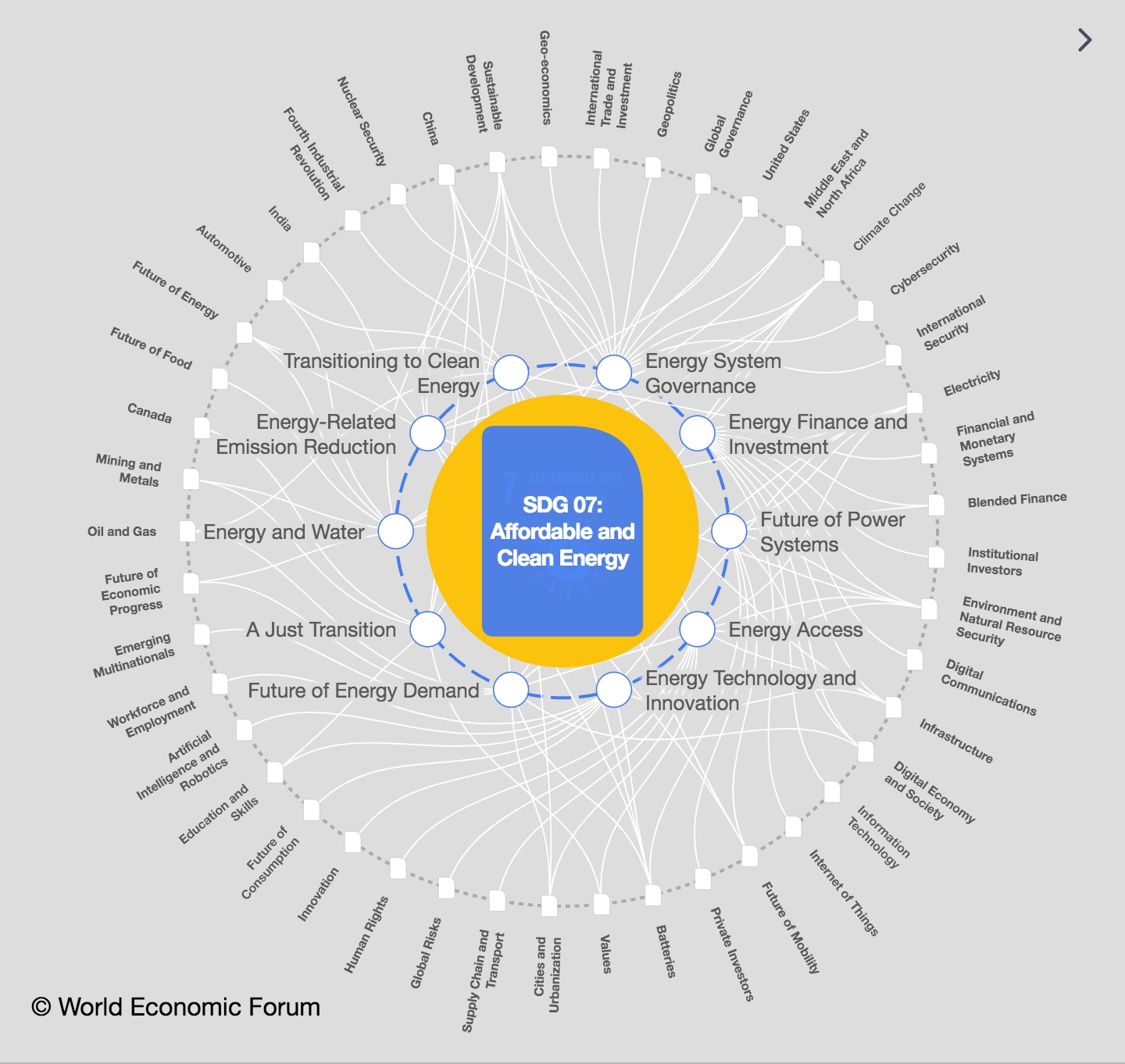Half-price energy bills if you live near a wind farm. Here’s some incentives to accelerate the renewable energy transition

India's power-related incentives in Gujarat can catapult renewable energy growth. Image: Unsplash/matthewhenry
Listen to the article
- Global investment in energy transition technologies hit a record $1.3 trillion in 2022.
- Across the world, households are benefiting from government initiatives that offer rebates, credits or discounts on renewable energy technologies.
- Here are some successful initiatives from various countries that are accelerating the transition to low-carbon energy.
Not many people are happy with their energy bills at the moment. But in a village in the UK, people are being offered a 20-50% discount on their household energy bills as part of an incentive scheme that is helping to promote renewable energy projects.
The scheme sees people who live near renewable power projects such as wind farms benefiting from price cuts. It’s part of an attempt to win over people who oppose having such developments built near where they live.
These kinds of incentives are not just restricted to small villages in the UK though.
A report from the International Renewable Energy Agency (IRENA) shows that global investment in energy transition technologies reached a record high of $1.3 trillion last year, unlocking opportunities not just for businesses, but for households too.
Here are some successful initiatives from around the world that are accelerating the push to net-zero emissions and helping households to decarbonize.
Germany
Households in Germany that produce renewable energy at home can sell any excess to the national grid. The feed-in tariff (FIT) scheme – which has been adopted by many other countries – pays renewable energy producers a set rate per kilowatt-hour for electricity they feed into the grid.
Germany also provides homeowners with tax incentives for energy-efficient renovations – households can claim back 20% of renovation costs up to €40,000 ($44,000) if they replace inefficient doors or windows, or buy new heating systems and insulation.
US
The US Inflation Reduction Act (IRA) arrived later than many other renewable energy initiatives, but it is so large in scope that it transformed the nation to a global leader in decarbonization investment potential almost overnight.
Nearly $400 billion in federal funding is available across a wide range of sectors, mainly in the form of tax credits. A lot of the incentives are there to help the private sector invest in large-scale projects, like producing clean hydrogen or nuclear facilities. But some are there to help households decarbonize and benefit from the typically lower unit costs of renewables.
US citizens can get $2,000 per year in credits for installing a heat pump, and up to $7,500 in credits for a new electric vehicle.
India
India is aiming for 65% of its power generation to come from non-fossil fuels by 2030.
The right incentives can catapult renewable energy growth – a solar power initiative in Gujarat has been so successful that the state accounts for around two-thirds of all residential rooftop solar power in the country, despite covering just 6% of India’s land mass.
Australia
Australia wants more than 80% of its electricity to come from renewable sources by 2030, and it is providing help for households to offset the high upfront costs of some energy systems.
Households installing small-scale energy systems – be that solar, wind or hydro – or a hot water system can benefit from financial incentives under the Small-scale Renewable Energy Scheme.
How is the World Economic Forum facilitating the transition to clean energy?
Australia also offers feed-in tariffs for solar and wind power, and some states offer additional incentives such as low-interest loans and grants for renewable energy projects.
Not everyone can afford rooftop solar panels though, so an AUD 120 million ($80 million) initiative to support community batteries across the country is under way, reducing network costs by storing energy close to the source of consumer demand.
China
China is already the world’s leading renewable power producer by capacity, and it is showing no signs of slowing, potentially adding 30% more solar capacity in 2023.
One in five solar panels installed around the world went on rooftops in China in 2022, as the government continues to offer financial incentives to make renewable power installation and generation more enticing.
A noodle shop owner in Shaanxi province says he has sold nearly $9,000 of clean electricity generated from his rooftop solar panels to the grid since 2018, thanks to a feed-in tariff programme.
More investment needed
Annual investments in renewable energy will need to almost quadruple to at least $5 trillion a year on average between 2023 and 2030, according to IRENA.
This is a significant challenge, but the agency points out that the trend of increasing investment reflects a growing understanding of the climate crisis, as well as the risks associated with an over-reliance on fossil fuels.
The need to address global investment in renewables while ensuring energy supply and security is addressed in the World Economic Forum’s Fostering Effective Energy Transition report. It says success will “depend on countries carefully striking the balance between energy affordability, availability and sustainability, and further strengthening their commitment to climate action”.
Don't miss any update on this topic
Create a free account and access your personalized content collection with our latest publications and analyses.
License and Republishing
World Economic Forum articles may be republished in accordance with the Creative Commons Attribution-NonCommercial-NoDerivatives 4.0 International Public License, and in accordance with our Terms of Use.
The views expressed in this article are those of the author alone and not the World Economic Forum.
Stay up to date:
SDG 07: Affordable and Clean Energy
Forum Stories newsletter
Bringing you weekly curated insights and analysis on the global issues that matter.
More on Energy TransitionSee all
Roberto Bocca
November 17, 2025







